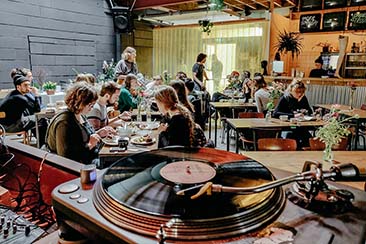So the saying goes: one man’s rubbish is another’s devastating design detail. Or something like that. In Antwerp—our favourite European city of style—Dutch designers, Marten van Middelkoop and Joost Dingemans, have applied their inspired Plasticiet waste material to use with epic flair; the Amsterdam-based designer glasses brand offering locals more than eyeful.
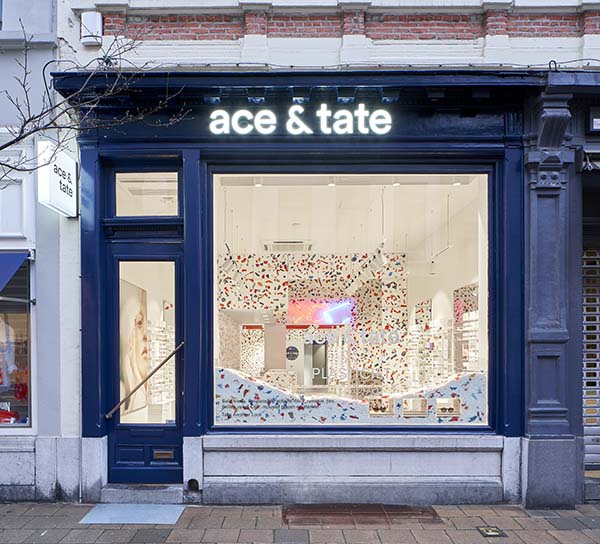
With an impressionable terrazzo style effect, the story behind the product is more of an eyeopener, near 1,000 kilograms of local waste plastic incorporated into Ace & Tate’s new Antwerp outpost alone. Conceived as a way to process hefty volumes of plastic waste and transform it into a new sustainable material, Marten and Joost’s Plasticiet works with local recycling companies to collect waste lococally; in this case, Antwerp’s Suez.
Collecting discarded polyethylene for Ace & Tate Antwerp, the material—commonly used in industrial and construction appliances, as well as domestic products such as food packaging, kitchenware and toys— was shredded into large pieces before being hand sorted into the distinctive colours of red, blue and orange to achieve that incredible terrazzo feel.
Working closely with the interior design team at Ace & Tate, Marten and Joost brought in many hallmarks familiar with the brand, including mirrors to create the feeling of space, and serve as a means for customers to sample the wares, and a familiar use of neon.
Offering a new vision of sustainability for a new age, Plasticiet’s use of reclaimed plastic here should provoke other retailers to question their use of in-store materials. As for Ace & Tate, this Antwerp outpost is just another tick-mark on a list of commitments toward a responsible future, culminating in the promise of becoming 100% carbon neutral by 2030. And that sort of commitment we can buy into. All eyes on a brighter tomorrow.
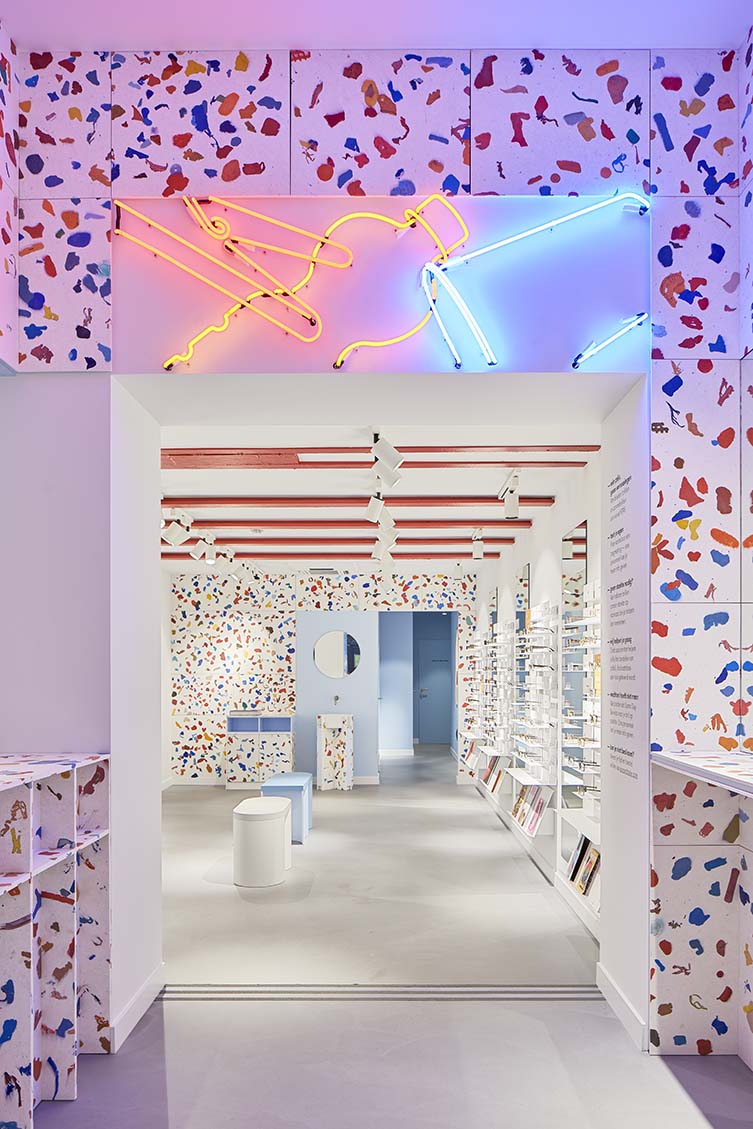
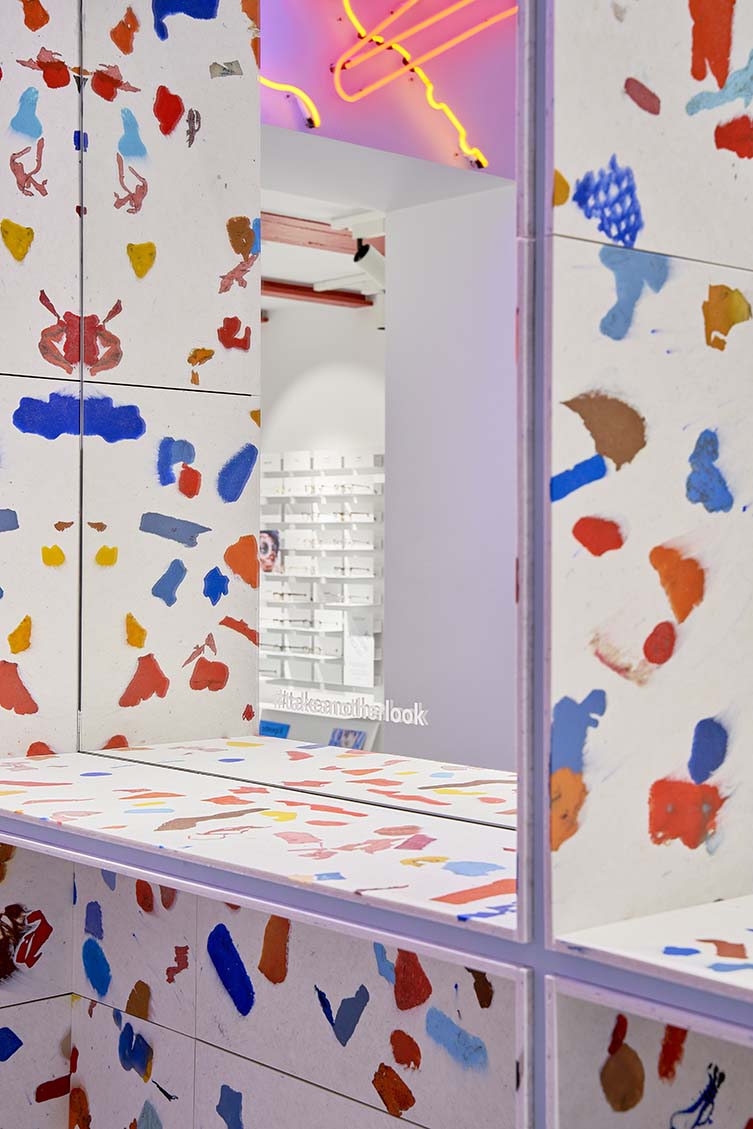
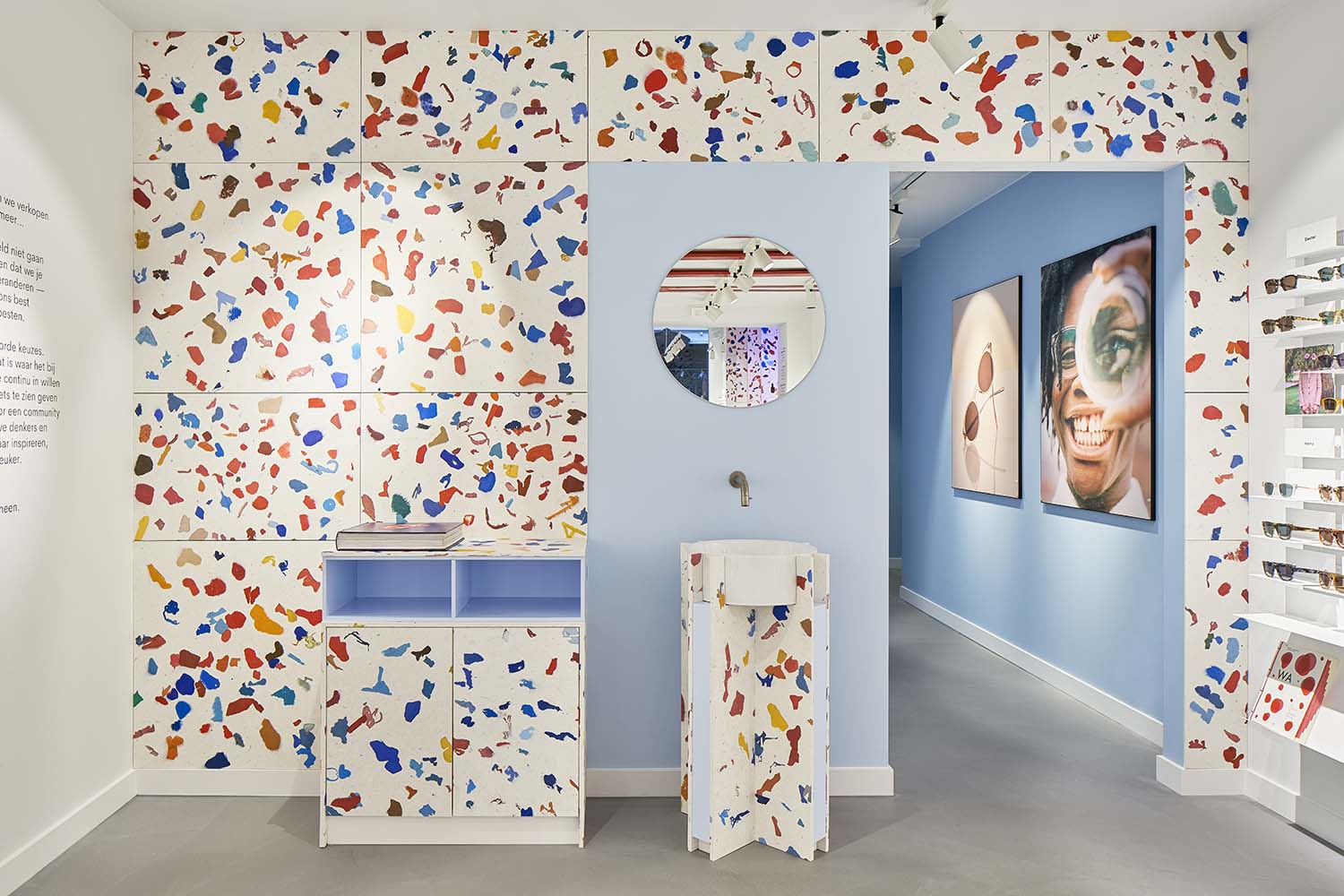
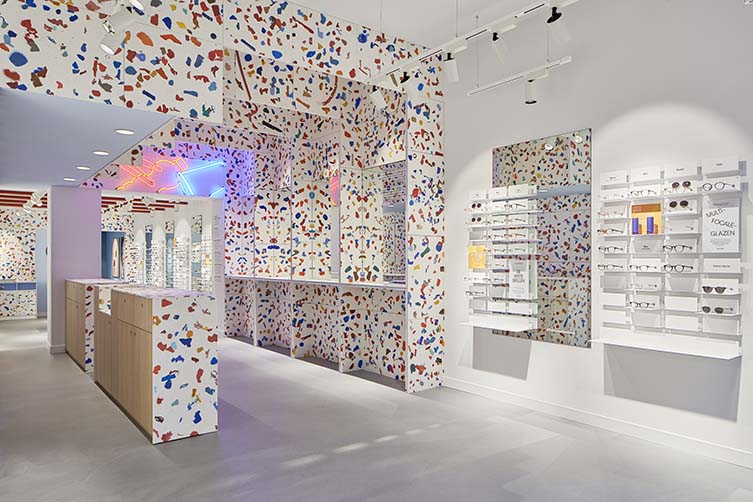
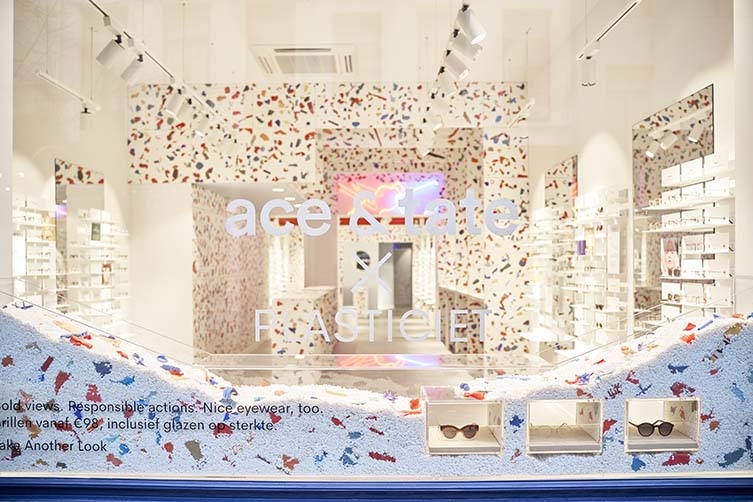
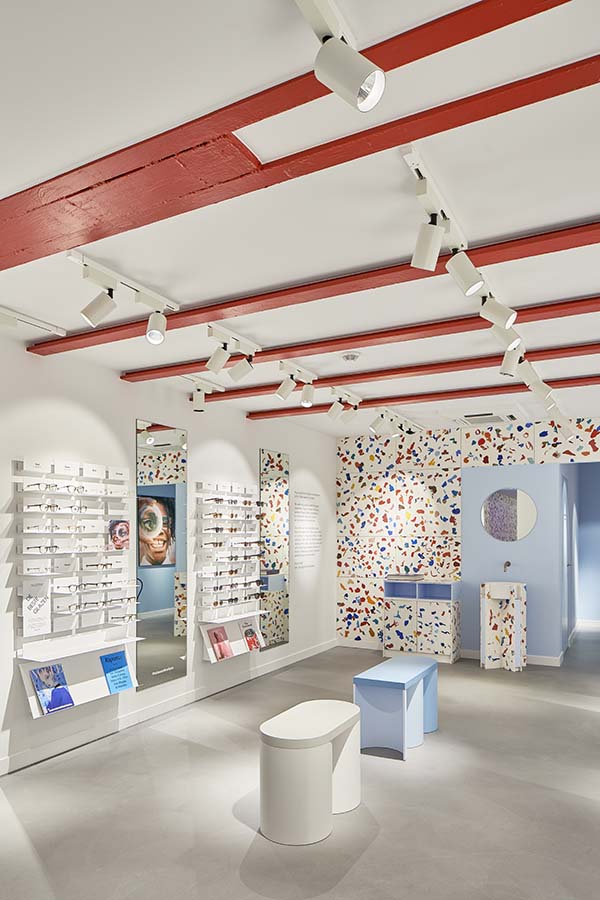
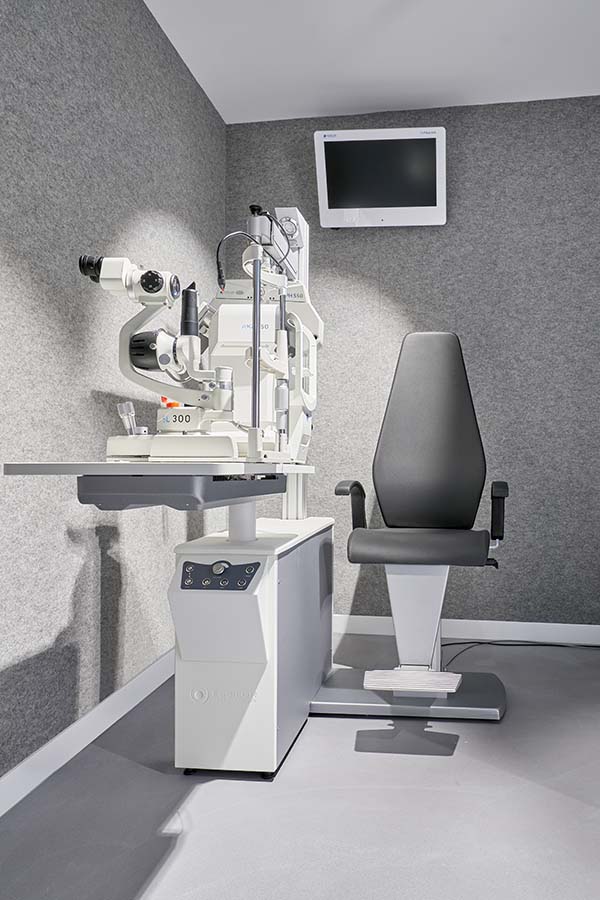
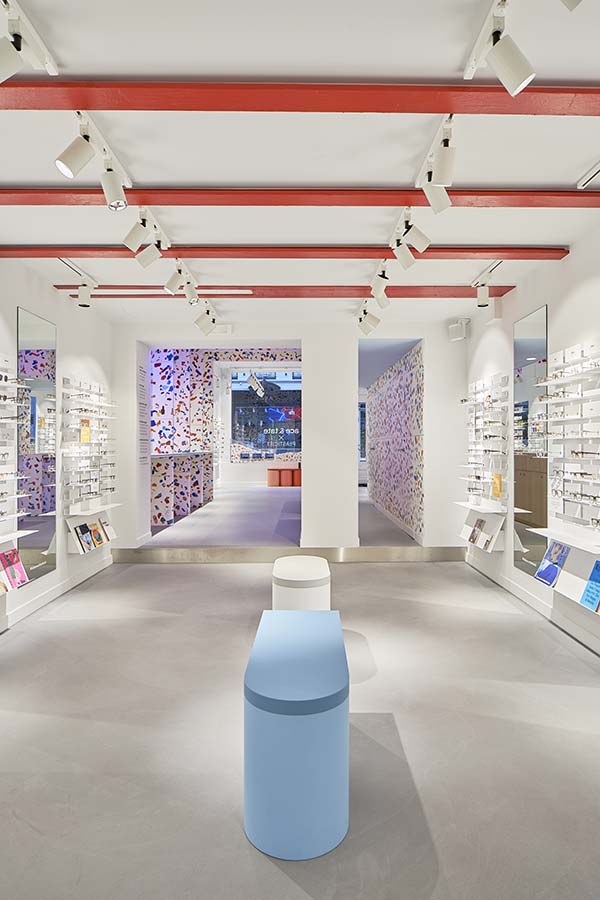
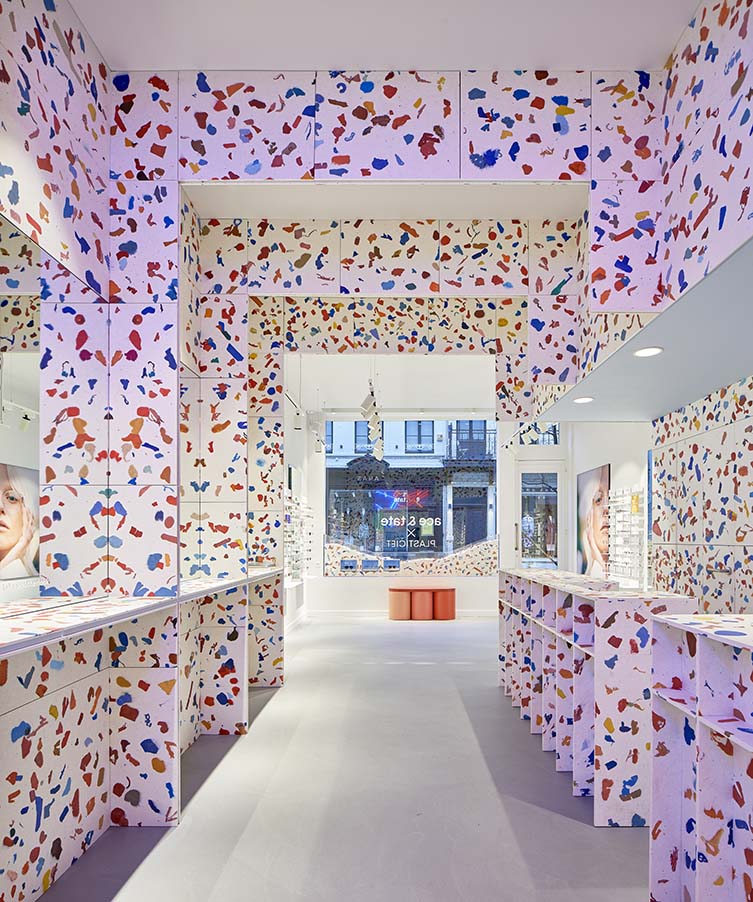
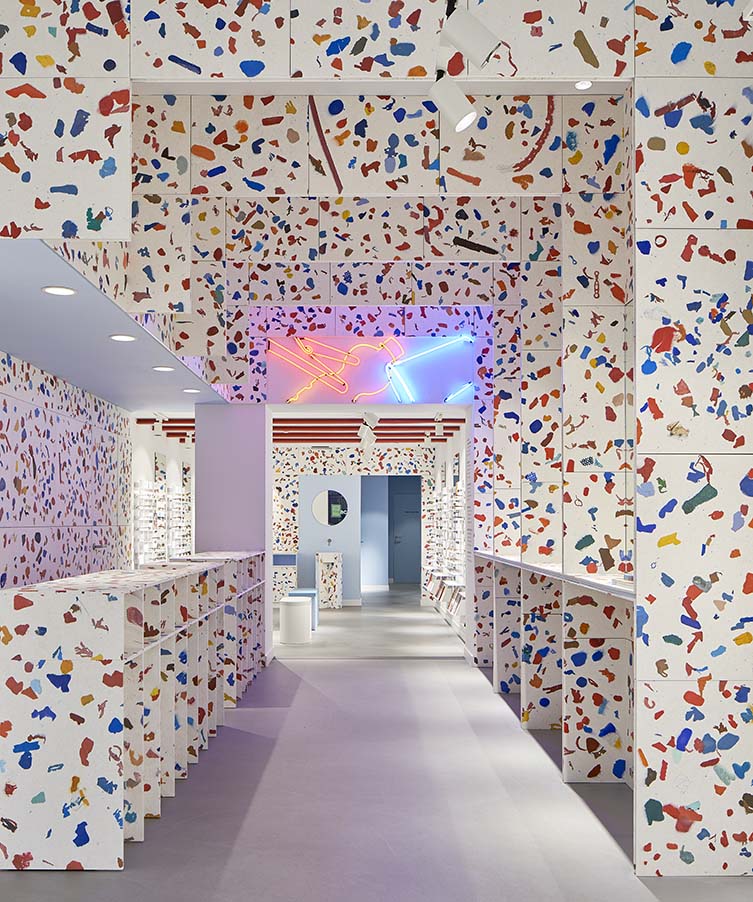
Ace & Tate Antwerp Photography, Lennart Wiedemuth.

